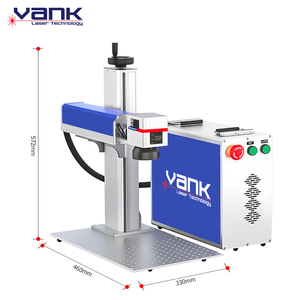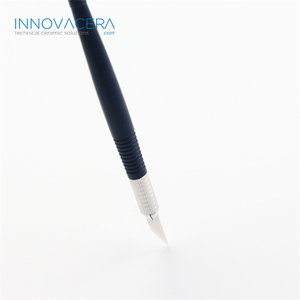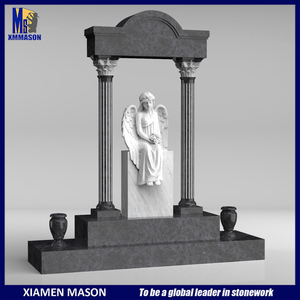
All categories
Featured selections
Trade Assurance
Buyer Central
Help Center
Get the app
Become a supplier

(1067 products available)













































The craft of jewelry making blends art with precise skills, where the quality of tools make or break the final piece. lapidary carving form the backbone of this creative trade, giving artists the means to form, design, and perfect their work. These items span many device types, each built for certain jobs that help create lovely jewelry items. Tasks range from cutting metals to setting stones and buffing final products. lapidary carving are central to changing raw materials into gorgeous body ornaments. As more people seek unique, top grade jewelry, having proper lapidary carving becomes more important.
Jewelry makers can find a wide range of lapidary carving on the market, serving many parts of the craft. Basic items include grip tools like pliers, various hammers, cutting blades, and smoothing files, each filling a special role in making jewelry. Grip tools work as all-purpose aids for bending, forming, and working with wire and thin metal sheets. Have have many shapes and sizes for tasks like adding texture, shaping forms, and joining pieces. Saws with super thin edges allows exact metal cuts, while smoothing sticks polish and refine rough spots. Each type of lapidary carving meets specific needs, so artists have just the right item to make their designs a reality.
Knowing how lapidary carving work is key for good jewelry making. These items offer exact control, steady hands, and quick work, letting jewelers get the look they want. Pliers with shaped handles feel good during long work hours, while size change saw bases work well for cutting different materials. Some lapidary carving include swap out parts, like diverse hammer heads or blades for saws, making them more useful for many jobs. Parts like fine point grabbers for tiny bits, or magnifying glasses for close work, help with the small details in jewelry craft. The best mix of lapidary carving lets artists make complex designs with sure hands and trust in the end result.
Tool makers choose strong and lasting materials when building lapidary carving for top results. Good steel forms the base for items like grip tools and saws, giving the strength needed for cutting and forming metals. Tungsten carbide makes up tools such as drill points and burrs, known for staying sharp through heavy use. Handles on lapidary carving often have rubber or hard plastic material, giving a firm grip that stops slips while working. Material selection affects how long tools last and how well they work, making sure they handle daily use in busy shops. New tech brings fresh materials and surface coats that make lapidary carving work even better and last much longer.
Working well with lapidary carving takes mixed skills, know how, and time at the bench. Smart artists pick just the right tool for each step, grasping what it does best and where it falls short. For instance, using a saw with proper blade stress stops breaks and leaves clean edges. Good care of lapidary carving , like daily wipe downs and edge touch ups, keeps them working right year after year. Safety steps matter too, such as eye guards and hand covers when needed. By learning to use lapidary carving like pros, jewelers boost their craft level, turning out jewelry pieces that show both art vision and bench skills.
Picking proper lapidary carving demands careful thought about several key factors to ensure the right match for actual needs. First, think about what tasks the bench work involves, as each tool serves certain jobs best. Jewelry work with tiny details requires exact tools with slim tips and fine edges. The materials used to make lapidary carving matters greatly too. Strong metals and tough surface treatments make tools last much longer and work better day after day. Hand comfort plays a big role as well, since shaped grips cut down on hand pain during long work sessions. Looking at all these points leads to lapidary carving that fit both creative goals and daily work habits at the bench.
Tool capacity and application stands as another vital point when buying lapidary carving . Some items feature swap parts or size change settings, opening up more uses from one tool. Money spent on flexible tools often pays back by cutting down on total tool count needed in the shop. Taking time to learn about new tech and fresh ideas in the field usually leads to better ways of working with less effort. Both new makers and old pros benefit from smart lapidary carving choices that boost skill level and raise the beauty of final jewelry items.
New jewelers should start with basic lapidary carving sets before buying complex items. Core tools include metal grip tools, a fine cutting frame, smoothing files, and a small hammer. These items teach main skills like cutting metal, forming shapes, and joining parts. As bench skills grow stronger, more lapidary carving enter the picture, such as soldering and surface polish tools that open new design paths and finish options.
Good care of lapidary carving makes tools work well and last for many years. Clean tools after each use to remove metal bits and polish cream. Keep cutting edges sharp and change worn parts like saw teeth when they start to drag. Storing lapidary carving in dry drawers with tool rolls prevents rust spots and damaged edges, keeping them ready for top level work at any time.
Safety takes the top spot when using lapidary carving in the studio. Eye guards and hand covers prevent harm from sharp metal bits or hot solder drops. Good air flow helps too, most of all when using strong chemicals or hot soldering tools. Learning the right way to use each tool and staying alert while working cuts down risks and builds a safer place for making jewelry.
Many lapidary carving accept changes or tweaks for each job at hand. Gripping pliers might get special jaw covers for unique bending work, while metal hammers can use different striking faces for varied texture marks. Changing tools to fit the job leads to more precise work and allows for personal style touches in metal shapes and surface looks on jewelry items.
The craft world keeps changing with fresh tech and new ideas. Recent growth in lapidary carving brought computer items like 3D shape makers and light cutters that work with great care and speed. These new tools let artists try hard designs and make work flow smoother from start to finish. Keeping up with current trends and adding good ones to the tool box keeps a jewelry shop current and able to compete in busy markets.